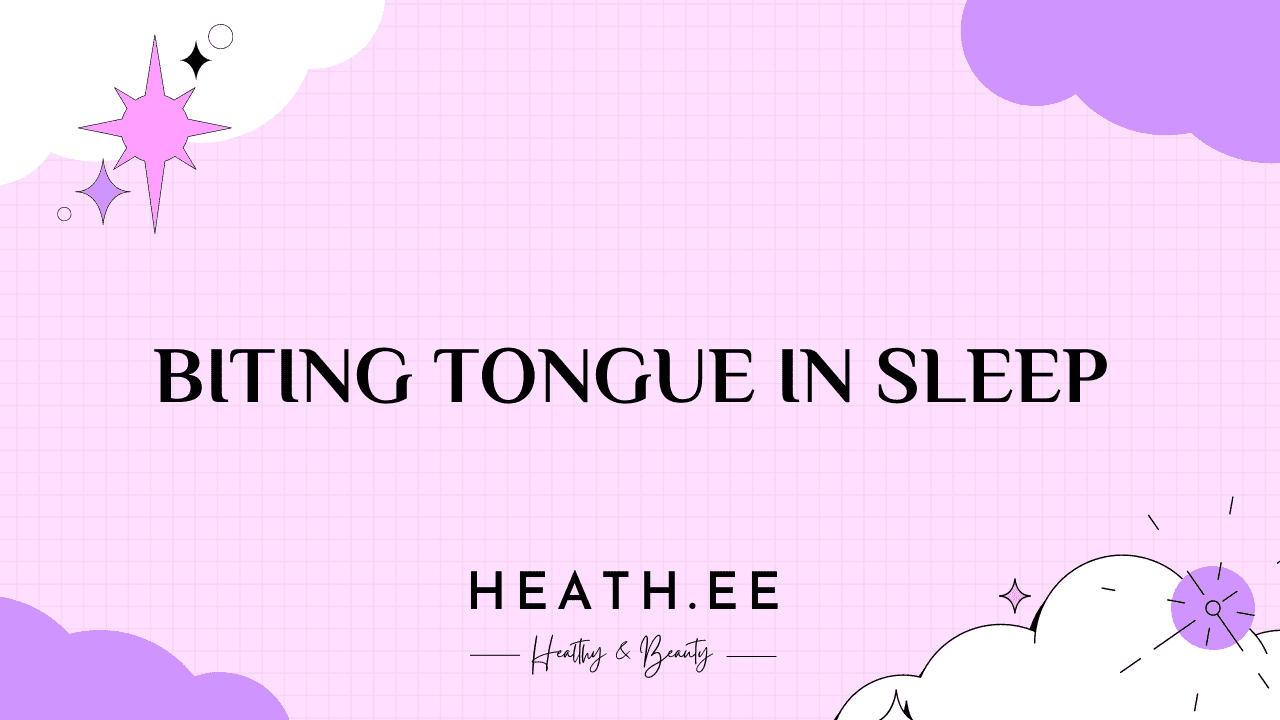Sleep is essential for our physical and mental health. But sometimes, our sleep can be disrupted by strange and unusual behaviors. Biting tongue in sleep is one of these behaviors and can cause serious discomfort and even injury. In this article, we’ll explore what biting tongue in sleep is, the causes behind it, and the treatments available to help you get a better night’s sleep.
What is Biting Tongue in Sleep?
Biting tongue in sleep is a behavior that occurs during sleep and can cause physical injury to the tongue. It is classified as a parasomnia, which is a type of sleep disorder. During the episode, the person may bite down on their own tongue, causing pain and discomfort. In some cases, the bite may be deep enough to draw blood.
Biting tongue in sleep is not a common behavior, but it is not uncommon either. It is estimated that about 5-10% of the population experiences this behavior. It is more common in children than in adults, and can occur at any age.

What Causes Biting Tongue in Sleep?
The exact cause of biting tongue in sleep is not known, but there are several factors that may contribute to the behavior. These include:
-
Stress and anxiety: Stress and anxiety can cause a person to clench their jaw and bite down on their tongue during sleep.
-
Sleep deprivation: Sleep deprivation can lead to a person becoming more easily aroused from sleep, which can lead to biting tongue in sleep.
-
Sleep apnea: Sleep apnea can cause a person to stop breathing during sleep, which can lead to biting tongue in sleep.
-
Medications: Some medications can cause a person to become more easily aroused from sleep, which can lead to biting tongue in sleep.
-
Alcohol: Alcohol can cause a person to become more easily aroused from sleep, which can lead to biting tongue in sleep.
How is Biting Tongue in Sleep Diagnosed?
Biting tongue in sleep is typically diagnosed through a sleep study. During the sleep study, the person is monitored for any unusual behaviors, such as biting tongue in sleep. If the behavior is observed, the doctor may order additional tests to determine the cause.

Treatment for Biting Tongue in Sleep
The treatment for biting tongue in sleep depends on the underlying cause. If the behavior is caused by stress or anxiety, the doctor may recommend relaxation therapy or cognitive behavioral therapy. If the behavior is caused by sleep deprivation, the doctor may recommend lifestyle changes, such as getting more sleep or avoiding caffeine and other stimulants. If the behavior is caused by sleep apnea, the doctor may recommend a CPAP machine or other treatments for sleep apnea. If the behavior is caused by medications, the doctor may recommend changing the medication or dosage.
In some cases, the doctor may recommend a mouth guard or other device to prevent the person from biting their tongue during sleep. The device should be worn only during sleep and should be removed during the day.
Prevention of Biting Tongue in Sleep
The best way to prevent biting tongue in sleep is to get enough sleep and manage stress and anxiety. Avoiding alcohol and stimulants can also help. If the behavior is caused by a medical condition, such as sleep apnea, the doctor may recommend treatments to address the underlying condition.
When to See a Doctor
If you or your child is experiencing biting tongue in sleep, it is important to see a doctor. The doctor can help determine the cause of the behavior and recommend treatments to help you get a better night’s sleep.
Conclusion
Biting tongue in sleep is a behavior that can cause physical injury to the tongue. It is classified as a parasomnia, which is a type of sleep disorder. The exact cause of biting tongue in sleep is not known, but there are several factors that may contribute to the behavior. Treatment for biting tongue in sleep depends on the underlying cause and may include relaxation therapy, lifestyle changes, a CPAP machine, or a mouth guard. The best way to prevent biting tongue in sleep is to get enough sleep and manage stress and anxiety. If you or your child is experiencing biting tongue in sleep, it is important to see a doctor.



